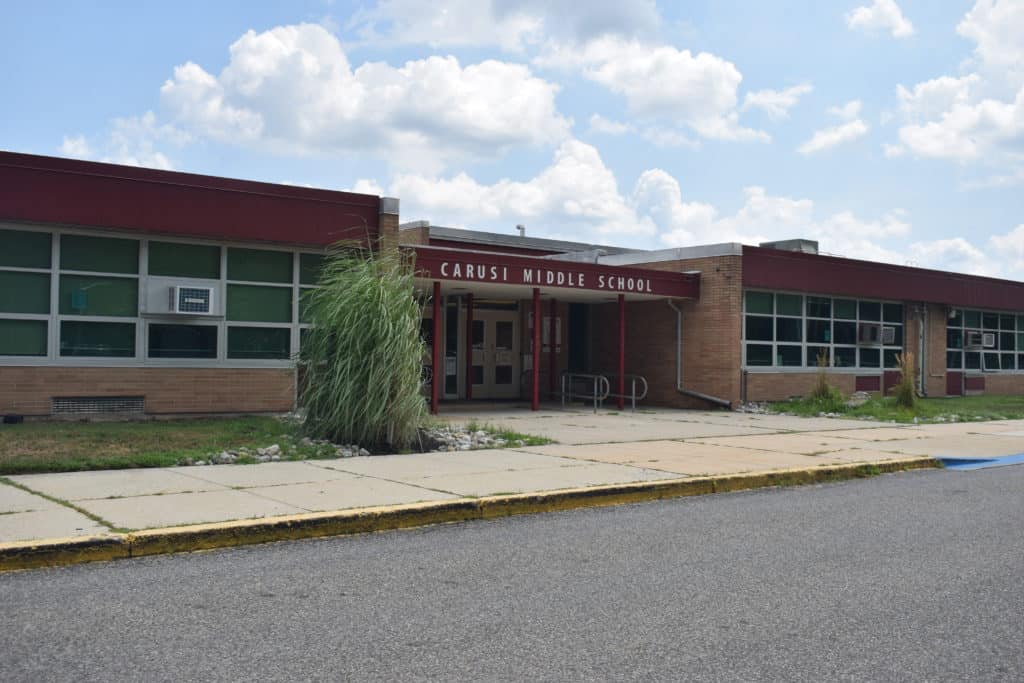

The last successful bond referendum passed by the Cherry Hill school district was in 1999, for $52 million. While a referendum was proposed for $210.7 million in 2018, it failed.
On Oct. 6, residents will vote on a $363-million referendum to pay for improvements at all 19 schools in the district, as well as new construction at 11 of them. The referendum has one question rather than three.
For the average assessed home of $225,473, the tax impact is estimated to be $399.65 per year. Voting will take place from 6 a.m. to 8 p.m.
“If the bond doesn’t pass, we’re going to be in dire straits in the school district,” said Superintendent Dr. Joseph Meloche. “This really is a generational opportunity to solidify the physical structure, the infrastructure, the grounds of the school district.”
If the bond does pass, work would begin at the earliest next June and continue for a few years. The goal would be to get into a roughly 10-year cycle for maintenance referendums.
The bond has been discussed at length many times in the past two years at board of education meetings and town halls, with the Bond Ad Hoc Committee and focus groups, in surveys and emails and with the parent teacher association (PTA). Tours were held so residents could see the state of school buildings.
“There is work that has to be done,” Meloche noted. “We are beyond end of life for many of our critical infrastructure systems, starting with HVAC … The systems are all at the minimum 20 to 25 years beyond their life capacity. Most are 40, 45 and 50 years (beyond end-of-life capacity), which is just unbelievable.”
The Sun sat down with Superintendent Dr. Joseph Meloche and Assistant Superintendent Lynn Shugars on Aug. 2 to break down the referendum question paragraph by paragraph. It can be viewed on the July 12 agenda under item 21.1.
The first part of the question explains what the funds will be used for. The first set of schools listed will receive “various improvements, alterations, renovations, repairs and upgrades,” but will not receive any new construction. These include Malberg Early Childhood Center, Cooper, Kilmer, Paine and Woodcrest elementary schools, Beck and Carusi middle schools and Lewis Alternative High School.
The second set of schools listed will receive all that is detailed above, but will also see new construction. They include Barton, Harte, Johnson, Kingston, Knight, Mann, Sharp, and Stockton elementary schools, Rosa Middle School and Cherry Hill East and West. Notable projects include adding all-purpose rooms to elementary schools and expanding the F-wing at East.
Garrison Architects has identified $370.4 million worth of work that needs to be done. That figure had been slimmed down in the past year to stay within the borrowing debt capacity and to make sure everything in the bond is really needed.
Some projects were taken out because they were already completed or could be funded through capital reserves, such as some Americans with Disabilities Act (ADA) projects that will be completed sooner by taking them out of the bond.
A total of $6.2 million will be funded by federal money received by the state, as well as COVID-relief and various grants. That leaves $363.9 million, of which the state has agreed to give $113 million toward debt service aid.
Assistant Superintendent and Business Secretary Lynn Shugars compared the bond referendum to taking out a mortgage.
“It’s almost like saying your mortgage is $1,000 per month, and (the state) will give you $300 to pay your mortgage,” she explained. “They will give us money to pay back the debt.”
Had the district tried to get these projects done without a referendum, Meloche noted it would take about 40 years. At most, the district could spend around $10,000,000 per year on improvement projects – almost double what it currently spends – and it would all be at a cost to taxpayers.
“By the time you get to the 40th year of doing it, everything you did in those first couple of years is out of warranty and needs to be replaced,” Meloche said. “The district has historically been underfunded for the past 30 years, and while it may never get those funds back, the state has promised the $113 million should the bond pass.”
The next part of the bond question lists the schools – next to a dollar amount – whose projects can be funded by the state, followed by schools with projects that can’t. The schools on the second list with a $0 dollar amount means they are eligible for reimbursement, whereas the dollar amounts show how much is needed to fund projects ineligible for state funding.
To see the tax estimate for your home or to learn about individual projects, visit https://www.cherryhilltomorrow.com/. Further questions and comments can be directed to [email protected].
This article has been updated to correct that at most the district could spend $10,000,000 per year on improvement projects, not $10,000.









